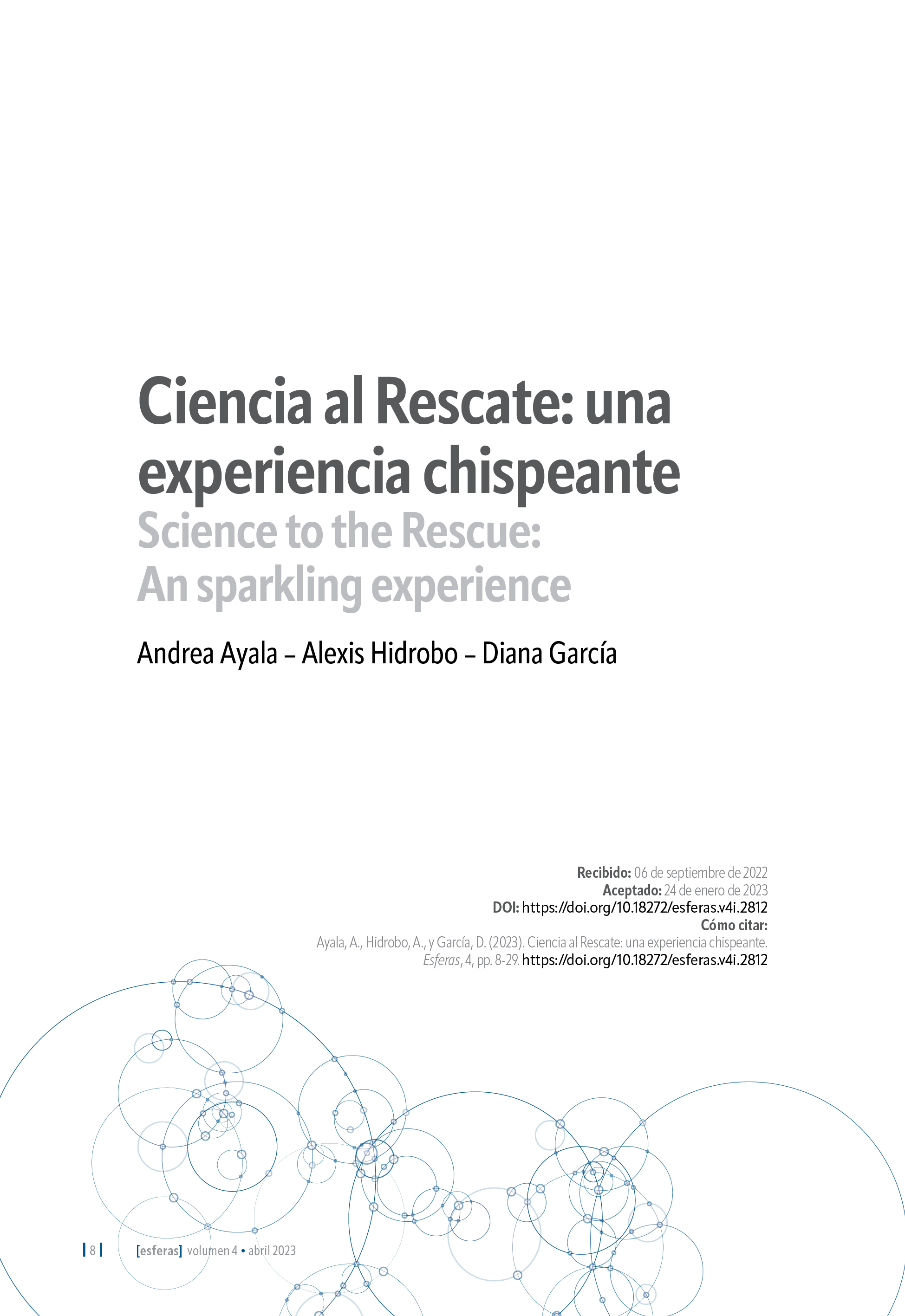
Published 2023-04-06
Keywords
- curiosity,
- scientific thinking,
- creativity,
- science dissemination,
- science
- social responsability ...More
How to Cite
Copyright (c) 2023 Andrea Ayala, Alexis Hidrobo, Diana García

This work is licensed under a Creative Commons Attribution-NonCommercial 4.0 International License.
Abstract
Children have an innate need to explore and make questions about what makes them curious. Also, they feel the desire to manipulate objects that allow them to experiment and try to understand a certain phenomenon. Learning science from an early age allows broadening knowledge and understanding of basic topics in biology, physics, mathematics or chemistry. Also, it helps to develop findings and explanations in an effective and systematic way, moving from experiential knowledge towards the scientist. It is necessary to satisfy this need to establish the foundation for future learning. Methodological proposals such as Science to the Rescue, allow teachers to manage this potential and direct it towards meaningful learning by younger students.
Downloads
References
- Bazhydai, M., y Westermann, G. (2020). From Curiosity, to Wonder, to Creativity: a Cognitive Developmental Psychology Perspective. Lancaster University Press.
- Cool Science. (s.f.). History and Mission. https://bit.ly/cscience2
- Escudero, T., y Correa, A. (2006). Investigación e innovación educativa; algunos ámbitos relevantes. Colección Aula Abierta. Editorial La Muralla.
- Friedl, A. E. (2005). Enseñar ciencias a los niños. Editorial Gedisa, S.A.
- Fingerhut, J., y Prinz, J. (2018). Wonder, appreciation, and the value of art. Progress in brain research.
- García, J., y Parada N. (2017) La razón sensible en la educación científica: las potencialidades del teatro para la enseñanza de ciencias. Instituto de Estudio de Educación. Universidad del Norte. https://www.redalyc.org/journal/853/85352029008/html/
- Harvard Graduate School of Education. (2022). Project Zero. https://pz.harvard.edu/who-we-are
- Ministerio de Educación del Ecuador. (2016). Programa de Alimentación Escolar. https://educacion.gob.ec/programa-de-alimentacion-escolar/
- Programa de las Naciones Unidas para el Desarrollo. (2020). Objetivos de Desarrollo Sostenible. https://www.un.org/sustainabledevelopment/es/
- Robinson, K. (2007). Ted Talk: Do Schools kill creativity? https://www.youtube.com/watch?v=iG9CE55wbtY&t=4s
- Science from Scientists. (2022). What is Science from Scientists? https://www.sciencefromscientists.org/community-outreach/
- Schinkel, A. (2020). From Curiosity, to Wonder, to Creativity: a Cognitive Developmental Psychology Perspective. En Bazhydai, M., y Westermann, G., Wonder, education, and human flourishing. Lancaster University Press.
- Tonucci, F. (1995). El niño y la ciencia. En Con ojos de maestro. Troquel.
- Universidades de Ecuador. (2021). Las 5 carreras más demandadas en Ecuador. https://bit.ly/carrerasd
- Vinculación con la Sociedad. (2021). Dashboard de proyectos de vinculación ODS. Universidad San Francisco de Quito. https://bit.ly/gisusfqvin
